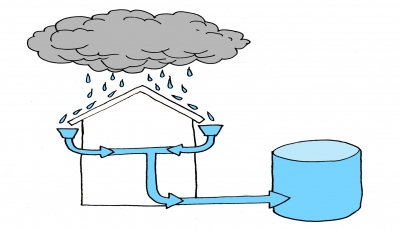Making The Most Of Industrial Waste Water Treatment Performance with Reclaim Waste Melbourne
Making The Most Of Industrial Waste Water Treatment Performance with Reclaim Waste Melbourne
Blog Article
Fostering Resource Effectiveness and Environmental Security Through Liquid Waste Elimination Programs
In the world of ecological stewardship, the monitoring of liquid waste stands as an essential time where resource performance and environmental protection converge. Via a lens of positive involvement and strategic insight, the landscape of liquid waste administration reveals a tapestry of challenges and opportunities that beckon us to discover the course towards a greener and even more sustainable future.
Value of Liquid Waste Removal
The relevance of liquid waste removal hinges on its crucial function in preserving environmental health and safeguarding public health. Liquid waste, if not properly taken care of, can present severe dangers to communities, water sources, and human health and wellness. With efficient removal processes, harmful materials such as pathogens, contaminants, and chemicals are stopped from contaminating the environment and triggering destructive results.
Correct fluid waste removal likewise assists in protecting against the spread of conditions and decreasing the possibility for groundwater contamination. By securely throwing away liquid waste, the risk of waterborne ailments and pollution-related health concerns is dramatically decreased - Reclaim Waste. Furthermore, effective removal techniques contribute to preserving the general cleanliness and aesthetic appeals of neighborhoods, therefore improving the lifestyle for residents
In addition, fluid waste elimination plays a vital function in sustaining sustainable development and ensuring compliance with environmental laws. By sticking to proper waste management organizations, markets and protocols can lower their ecological footprint and show company obligation. Ultimately, purchasing robust liquid waste removal programs is essential for advertising ecological stewardship and fostering a much healthier, much safer future for all.

Advantages of Efficient Disposal
Effective disposal of liquid waste not only safeguards environmental health and wellness and public wellness however likewise yields numerous benefits that prolong beyond immediate containment actions. One essential advantage of reliable disposal is the decrease of contamination in water bodies and dirt. By properly managing liquid waste, the risk of contamination reduces, maintaining communities and securing biodiversity. Additionally, reliable disposal techniques add to source preservation. With processes like recycling and power healing, valuable sources can be extracted from fluid waste, advertising sustainability and minimizing the pressure on raw products. In addition, embracing efficient disposal approaches can lead to set you back savings for businesses and neighborhoods. By optimizing waste administration procedures, organizations can simplify operations, lessen disposal expenditures, and possibly generate revenue with the sale of recycled materials. In general, the advantages of reliable fluid garbage disposal are complex, incorporating environmental management, resource effectiveness, and economic advantages.
Technologies for Waste Treatment
Making use of innovative modern technologies for waste treatment plays an essential role in ensuring the effective administration and secure disposal of fluid waste. One of the vital modern technologies used in liquid Click Here waste treatment is biological treatment. This method uses microbes to damage down raw material in the waste, converting it right into harmless results. An additional typical innovation is chemical treatment, where chemicals are included in the waste to reduce the effects of damaging parts or speed up impurities for removal. Physical treatment techniques, such as filtering and sedimentation, are likewise extensively utilized to separate solids from liquid waste.
In addition, thermal therapy approaches such as incineration can be utilized for the complete damage of harmful elements in fluid waste. In general, the combination of varied therapy technologies ensures thorough and environmentally friendly monitoring of fluid waste.
Duty of Laws and Compliance
In the world of fluid waste monitoring, adherence to governing structures and compliance criteria is vital for securing environmental health and sustainability. Laws play an essential function in regulating the proper handling, treatment, and disposal of liquid waste to avoid injury to ecological communities and human wellness. By developing clear guidelines and criteria, regulative bodies make certain that businesses and individuals entailed in fluid waste monitoring run in an eco accountable fashion.
Conformity with these guidelines is not just a lawful need but likewise an ethical obligation to secure the environment for future and existing generations. It includes executing best methods in waste collection, treatment, transport, and disposal to decrease environmental effect and advertise resource effectiveness. Non-compliance can lead to penalties, legal action, and reputational damages for organizations, highlighting the relevance of upholding regulatory standards.

Future Fads in Waste Administration

Another essential trend in waste administration is the fostering of sophisticated information analytics and expert system to maximize waste collection paths, improve sorting procedures, and improve overall functional performance. These innovations enable waste administration companies to make data-driven choices, leading to cost savings and environmental benefits.
Additionally, there is a growing focus on the growth of decentralized waste administration systems, such as onsite therapy facilities and mobile waste handling devices. These systems provide adaptability and scalability, permitting much more efficient waste handling in varied atmospheres.
Verdict
To conclude, fostering resource efficiency and ecological protection with liquid waste elimination programs is essential for sustainable growth. Effective disposal approaches, advanced my blog modern technologies for waste treatment, and rigorous guidelines play essential functions in lessening environmental influence. Looking ahead, continuous technology and enhancement in waste administration methods will certainly be necessary for dealing with the growing challenges of liquid waste disposal.
In the world of ecological stewardship, the monitoring of liquid waste stands as an important point where source performance and ecological security assemble (Reclaim Waste liquid waste removal).Using sophisticated modern technologies for waste therapy plays a vital role in making certain the effective management and secure disposal of liquid waste.In the realm of fluid waste management, adherence to regulative frameworks and conformity criteria is vital for securing environmental wellness and sustainability.In verdict, promoting resource performance and ecological protection with fluid waste elimination programs is vital for sustainable advancement. Looking in advance, continual innovation and enhancement in waste management methods will be crucial for addressing the growing challenges of fluid waste disposal
Report this page